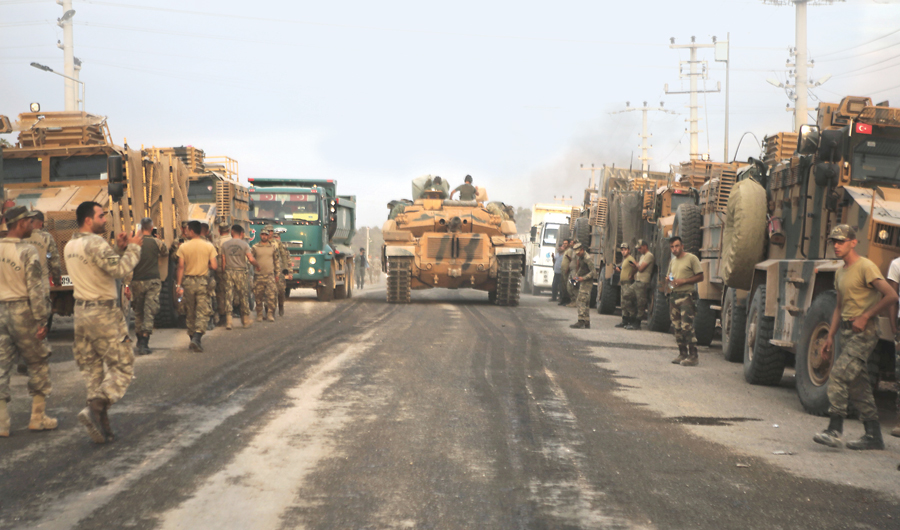Abul Gheit: Turkish attack on Syria incites regional hostility
CAIRO: Arab League Secretary-General Ahmed Abul Gheit said that the Turkish attack on Syria will incite “uncontrollable hostilities” in the region which could have negative repercussions.
Abul Gheit said that foreign intervention in Arab affairs by regional powers fueled further crises and made the possibility of settling them harder. He added that the latest Turkish attack on Syrian lands would complicate the situation.
He expressed alarm over Ankara’s plans and current preparations to carry out a military operation deep inside Syria.
Abul Gheit said the Arab League views Ankara’s military operation as a clear violation of sovereignty that would threaten Syria’s unity and would open the door for more deterioration in security and the humanitarian situation.
He called on Turkey to withdraw its troops from all Syrian lands.
Assistant Secretary-General and Chief of Staff of the Arab League Hossam Zaki said: “Turkey should not carry out such military operations.”
On efforts by the Arab League to prevent a military attack on northern Syria, Zaki said it “was not involved in the Syrian issue from 2011, when Syria’s membership was suspended. It does not have the effective tools to be involved in the crisis.”
SPEEDREAD
• Arab League views Ankara’s military operation as ’a clear violation of sovereignty that would threaten Syria’s unity.
• An emergency meeting of the Arab League Council at the level of foreign ministers will be held on Oct. 12.
He pointed out that regional and international consultations are usually held between groups of states, adding that the Arab League is excluded from such talks.
Zaki said that since Abul Gheit assumed his post three years ago, he has been seeking to involve the Arab League in regional and international efforts with regards to the Syrian crisis.
“However, we have not achieved our aspired success so far. Hence, when the crisis of military operations in northern Syria erupts, the Arab League can only express a political stance. We cannot say that we would be active in this crisis or that we can influence Turkey, a country threatening the sovereignty of a member state.”
Zaki confirmed that an emergency meeting of the Arab League Council at the level of foreign ministers will be held on Oct. 12 after Egypt called for it. The meeting, to be held in consultation with Iraqi Foreign Minister Mohamed Ali Alhakim, will discuss Turkish aggression in Syria.

Council of Arab League opens to discuss political developmentsInternational community must help stop Israeli aggression against Al-Aqsa: Arab League



